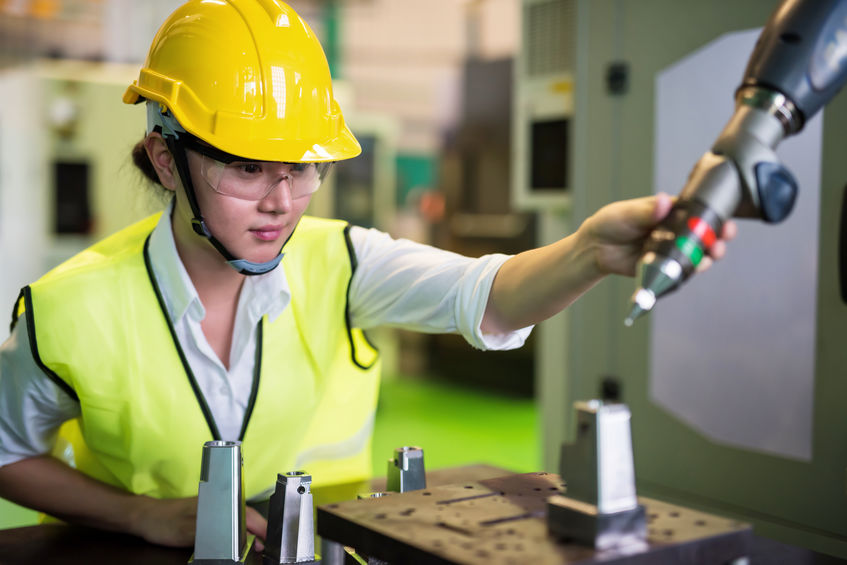Beyond COVID-19: The Path for Local SMEs and Businesses to Emerge More Resilient
By Jeanne Kuah
Business leaders who are flexible, adaptable and agile, will ensure their businesses remain competitive even during the pandemic
The coronavirus pandemic is a world-changing event and it took the world by complete surprise. Many countries globally have made the decision to impose lockdowns or partial lockdowns to reduce its spread, hitting a pause to many businesses except in “essential” sectors.
“Learning is the new currency that can help us succeed as a workforce.”
Even as lockdown restrictions begin to ease, local businesses will need to figure out how to operate in new ways. In short, resiliency – the ability to absorb a shock, and to come out of it better than the competition – will be the key to survival and long-term prosperity. The COVID-19 could end up dwarfing the financial crisis in economic damage.
Having Stronger Emphasis on Internal Engagement and Management
The unchartered waters during the pandemic require an agile workforce that can adapt to changes in the market. Local businesses and SMEs should take the opportunity to reskill and upskill its employees. This also helps keep employees engaged and prepare for the future. Learning is a new currency that can help us succeed as a workforce.
For example, employees working in sales may not be able to do remote work, but they can learn to work on changing customers’ experience and interacting with them through other means. They can also learn new skills and cover other areas of work.
During these trying times, it is imperative that everyone plays their part. Managers should take a more holistic view in order to face challenges of disruption and inventory shortages. Aside from business operations, they should also consider balancing the working capital’s constraints on inventory.
Financially distressed companies should take decisive actions to reduce operating costs. However, it is critical to maintain some flexibility by balancing reductions against the eventual need to scale operations back up as the economy recovers.
In the short term, businesses may also need to seek extended credit terms with suppliers and have conversations with bankers to clarify expectations, current loans including bank covenants and repayment obligations. There should be a continuous focus on assessing a company's liquidity.

Leverage on intelligent automation to reduce dependency, frequency and duration of human-to-human contact
Rethinking the Business Model
During the pandemic, consumers have also taken up new ways to learn, work, entertain themselves, procure essentials and non-essentials, connect with others, and increase wellness while at home. Some of these new practices will likely become a permanent fixture of the next normal. Consumer behaviour and demand patterns have changed significantly and will continue to do so.
Local businesses and SMEs need to adapt and rethink their business models to remain competitive on the other side of COVID-19. Again, an emphasis on the need to be agile. This means putting in place a new operating model built around the customer and supported by the right processes.
There is no doubt COVID-19 has shaken up many businesses. There will be new market opportunities as services and products are reimagined and new needs emerge from communities.
“There is no doubt COVID-19 has shaken up many businesses. There will be new market opportunities as services and products are reimagined and new needs emerge from communities.”
Businesses need to rethink their revenue profile and position themselves for the long term.
For example, the adoption curve of e-wallets has seen a steep growth. During this period, e-wallet vendors have encouraged online food traders and customers to go cashless through incentives such as cashback and free delivery. Local F&B businesses and SMEs need to think of ways to cater to online customers and refine their online targeted campaigns.
We can also see the rise of social enterprises business models where profits and purpose are combined in practice. It considers how social impact is generated, which drives all business decisions. This is becoming increasingly critical to maintaining reputation, to attracting, retaining and engaging critical workers, and to cultivating loyalty among customers. Profitability is then the enabler for social impact. Hence, when rethinking business models, businesses should also consider social impact, especially in today’s human, economic and social COVID-19 crisis.

The transition to working from home or remotely, is a crucial step to ensure the business continues to operate
Accelerating Adoption of Digital Solutions
The future of work, defined by the use of automation and technology, was always coming. COVID-19 has hastened the pace across all sectors.
A main change in lock-down measures resulted in businesses shifting to remote working for most employees. Many local businesses and SMEs were not prepared for this. They faced a lack of infrastructure and systems to support such a shift, such as availability of laptops, cloud-based solutions to remotely access files and setting up of tele-conferencing facilities.
Hence, local businesses and SMEs need to start to think about business continuity planning to be more resilient. As lock-down measures are being lifted, remote working seems to be widely encouraged to reduce social contact.
Based on a study conducted by SME Corp in 2017, SMEs tend to rely on manual processes and tasks. The usage of back-end cloud-based business processes among the SMEs in Malaysia, such as Enterprise Resource Planning (ERP), Electronic Payroll Systems and Customer Relationship Management (CRM) is still very low. Manual processes will not remain sustainable for the future and especially during this pandemic.
More automation is also required to support the minimisation of human contact. For example, on the manufacturing floor, workers will need to practice social distancing. Hence, machines need to be more automated to support production. Also, in the healthcare sector, when the system is overwhelmed, robots will be required to serve isolated COVID-19 patients in hospitals and quarantine centres to support frontline healthcare workers.
“Resiliency – the ability to absorb a shock, and to come out of it better than the competition – will be the key to survival and long-term prosperity.”
Taking this time to make lateral changes is a good way to leverage this extraordinary situation to better prepare for the future. Digital adoption will not only enable businesses to cope during this period, but also emerge more resilient for the future. Digital adoption will increase productivity gains.
Resilience is Vital
COVID-19 has affected every element of business, from the robustness of supply chains, to the stability of the financial markets, the availability of the labour force and the rapidly waning customer demand. In the face of these challenges, resilience is a vital necessity. Businesses that reinvent themselves to make the most of better insight and foresight, will disproportionately succeed.

Jeanne Kuah is the founder and principal of a data analytics and strategy development consulting firm. Her passion is to create a smarter tomorrow.


